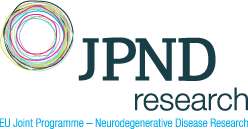Prodromal biomarkers in fatal familial insomnia: a longitudinal study in humans and mice
Human prion diseases are rare neurodegenerative disorders caused by prion protein (PrP) misfolding, which typically lead to death within a year from onset. Their rapid progression represents a challenge for therapy, as symptomatic patients may be profoundly debilitated by the time of diagnosis and treatment. Asymptomatic individuals with PrP mutations, many of which are highly penetrant, have the opportunity to be given treatments to prevent disease. However, biomarkers predictive of disease onset and/or progression are lacking, hampering design of preventive trials. The only preventive clinical trial underway (DOXIFF) involves carriers of the PrP mutation linked to fatal familial insomnia (FFI) and uses historical data to detect possible effects of doxycycline treatment on expected disease onset. This 10-year-long trial started in 2012 and results will be available next year. Brain-derived proteins, such as neurofilament light chain (NfL), tau and PrP, have been proposed to fill the unmet need for prodromal biomarkers and/or surrogate outcome measure in interventional studies, but their validity remains to be established. In this project we aim to test proposed biomarkers in a large population of FFI individuals, and to carry out proteomic and metabolomic studies in extracellular vesicles (EVs) of CNS origin to identify disease-related signature(s) which may help understand FFI pathogenesis and serve as new biomarkers and/or potential targets for treatment. Specifically, we will: 1) measure plasma NfL, tau and PrP trajectories in well-characterized longitudinal cohorts of carriers of the FFI mutation, healthy at enrollment, who developed symptoms or are approaching the predicted age of disease onset, including individuals enrolled in the DOXIFF study; 2) optimize the RT-QuIC amplification technique to monitor the emergence of misfolded PrP in non-invasive FFI samples, such as urine and EV-enriched plasma fractions; 3) perform proteomic and metabolomic analysis of EVs purified from the plasma and culture media of iPSC-derived neurons from carriers of the FFI mutation to identify new potential biomarkers; and 4) correlate changes in plasma biomarker levels with the emergence and progression of behavioral disturbances and neuropathological changes in a FFI mouse model. These studies are expected to identify mechanistic biomarkers which could be used to predict the onset of symptoms and/or measure disease- modifying effects of pharmacological treatments in carriers of the FFI mutation.
| Funding Agency |

|
|---|---|
| Proje Duration |
|
| Consortium |
|
| Turkish Team | |
| Publications |
|
| Outreach |
|
| News |
|